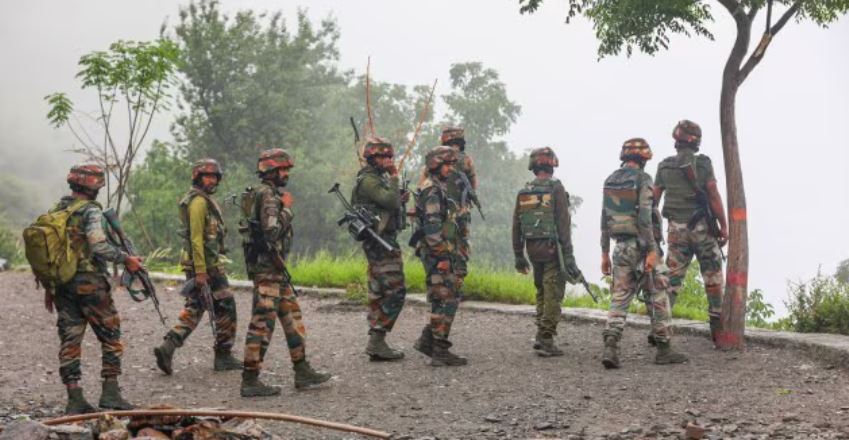The death of Awami League leader Ishaque Ali Khan Panna near the India-Bangladesh border has sparked intrigue and concern, deepening the complexities of cross-border relations between the two neighboring countries. Found deceased in a betel nut plantation within Meghalaya’s East Jaintia Hills district, his passing raises critical questions about the security dynamics along the border and the potential political repercussions in Bangladesh. This incident occurs against the backdrop of ongoing efforts to strengthen bilateral ties, yet it underscores the persistent challenges in managing sensitive border areas where law enforcement and political interests often collide.
The Incident: Unveiling a Mystery
On August 26, 2024, the body of Ishaque Ali Khan Panna, a prominent figure in Bangladesh’s Awami League, was discovered in an inclined betel nut plantation within Meghalaya’s East Jaintia Hills district, located approximately 1.5 kilometers from the India-Bangladesh border. His death, under suspicious circumstances, quickly became a focal point of concern for both India and Bangladesh. Meghalaya’s authorities acted promptly, coordinating with Bangladeshi officials to facilitate the handover of Panna’s body after identification and necessary formalities.
The discovery site, situated in the remote Dona Bhoi area, is known for its challenging terrain and proximity to the border, which has historically been a hotspot for illicit activities. However, the circumstances leading to Panna’s death remain unclear. Local media reports, citing unnamed police sources, suggest that the cause of death was asphyxia due to throttling. This revelation, although not officially confirmed by Meghalaya’s government, hints at foul play, raising concerns about the security and safety of political figures along the border.
Political and Diplomatic Implications
Panna’s death comes at a critical juncture in India-Bangladesh relations. Both nations have been working towards enhancing cooperation on various fronts, including trade, security, and cultural exchanges. However, the incident has the potential to strain these relations, especially if investigations point towards cross-border foul play or political motives. The Awami League, as Bangladesh’s ruling party, plays a crucial role in shaping the country’s internal and external policies. Any threat to its members, particularly in sensitive border areas, can escalate into a larger political issue.
Bangladesh’s government, led by Prime Minister Sheikh Hasina, has emphasized the importance of maintaining harmonious relations with India. However, the death of a key political figure near the border may compel Dhaka to demand a more thorough investigation and accountability from the Indian authorities. The incident also highlights the challenges both countries face in securing their borders and ensuring the safety of their citizens, particularly those involved in politics or activism.
The Border Dynamics: A Persistent Challenge
The India-Bangladesh border, stretching over 4,000 kilometers, is one of the longest international borders in the world. While it serves as a gateway for trade and cultural exchanges, it is also a zone of contention, marked by issues such as illegal immigration, smuggling, and occasional violence. The East Jaintia Hills district, where Panna’s body was found, is no stranger to these challenges. The area is known for its rugged terrain and dense forests, making it difficult for security forces to monitor and control illegal activities effectively.
The Border Security Force (BSF) of India and the Border Guard Bangladesh (BGB) have been working in tandem to manage and secure this porous border. However, the complexities of the region, coupled with political sensitivities, often hinder these efforts. The discovery of Panna’s body and the subsequent investigation will likely put additional pressure on these security forces to tighten their surveillance and enhance coordination to prevent such incidents in the future.
Recent Developments and Updates
As the investigation into Panna’s death continues, several new developments have emerged, shedding light on the broader implications of this incident. According to recent reports, the Bangladeshi government has expressed concern over the safety of its political figures, particularly those who travel close to the border. This has led to increased scrutiny of cross-border movements and a call for more robust security protocols to protect political leaders.
Additionally, there have been unconfirmed reports of heightened tensions within the Awami League following Panna’s death. Some factions within the party are reportedly questioning the circumstances surrounding his demise, with speculations of internal rivalries or external interference. These developments, if confirmed, could further complicate the political landscape in Bangladesh and its relations with India.
Moreover, the incident has prompted discussions on the need for more comprehensive border management strategies. Experts suggest that both India and Bangladesh should invest in better infrastructure and technology to monitor the border more effectively. This includes deploying advanced surveillance systems, enhancing communication between security forces, and conducting joint training exercises to improve response times in emergencies.
Conclusion: Navigating the Complexities
The death of Ishaque Ali Khan Panna near the India-Bangladesh border is a stark reminder of the challenges that persist in managing cross-border relations. While both nations have made significant strides in strengthening their partnership, incidents like this highlight the vulnerabilities that remain, particularly in border areas. As investigations continue, it is crucial for both India and Bangladesh to approach the situation with transparency and cooperation, ensuring that justice is served and that such incidents do not derail the progress made in their bilateral ties.
Moving forward, the focus must be on enhancing border security, protecting political figures, and addressing the root causes of tensions that lead to such tragedies. Only through a collaborative and proactive approach can India and Bangladesh overcome these challenges and build a more stable and secure future for their citizens.
Soumya Smruti Sahoo is a seasoned journalist with extensive experience in both international and Indian news writing. With a sharp analytical mind and a dedication to uncovering the truth, Soumya has built a reputation for delivering in-depth, well-researched articles that provide readers with a clear understanding of complex global and domestic issues. Her work reflects a deep commitment to journalistic integrity, making her a trusted source for accurate and insightful news coverage.



